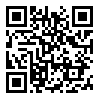PhD in Medical Informatics, Professor, Health Management and Economics Research Center, Health Management Research Institute, Iran University of Medical Sciences, Tehran, Iran
Abstract: (640 Views)
The COVID-19 pandemic placed significant pressure on Iran’s health system and increased public demand for reliable information and psychosocial support. In response, the 4030 call center provided 24/7 guidance, psychological counseling, and health information to the public. This policy brief is based on a qualitative study conducted in 2023, which involved interviews with 64 participants, including call center staff, consultants, and callers. Data were analyzed using framework analysis to identify key themes related to the call center's performance. The results indicated major strengths, such as large-scale telephone screening, timely psychological support, credible information dissemination, and broad accessibility. However, several challenges were identified, including workforce shortages, training gaps, technological limitations, insufficient integration with the formal health system, and a lack of structured feedback mechanisms. Recommended strategic actions include strengthening technological infrastructure, institutionalizing training, evaluating performance, expanding the service scope, establishing systematic feedback, and stabilizing the workforce. These measures aim to enhance the quality, equity, and resilience of national health hotlines and call centers during future health crises.
Send email to the article author
| Rights and permissions | |
 |
This work is licensed under a Creative Commons Attribution-NonCommercial 4.0 International License. |





